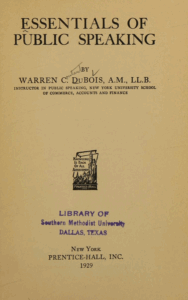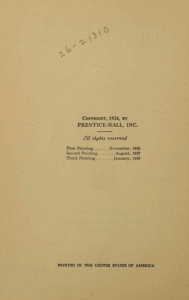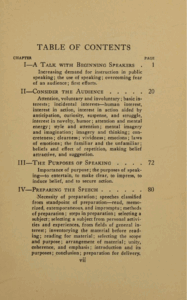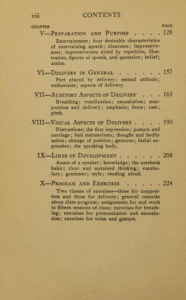Read free. Essentials of Public Speaking, Warren C. DuBois, 1926.
Excerpt
First and last, public speaking is a practical art, a means, not an end. It is a purposive activity, not a mere vehicle for the exhibition of skill. The only excuse for studying the art is that we may fashion a tool that will help us turn a vision into a reality. But if we are to make it a useful tool, we must always speak with a definite purpose in mind. No speaker ever attained his goal without subordinating his art to his subject.
The world is full of glib talkers—men who will champion either side of any question so long as it affords them an opportunity to get into the limelight. The tricks of oratory have always been the weapons of shysters, demagogues, and dishonest business men. They are usually successful up to a certain point. But when their motives are once discovered, they are “through.” The greatest single asset which any speaker can possess is a reputation for sincerity….
The first problem is that of acquiring self-confidence, or, rather, overcoming certain imaginary obstacles which stand between you and confidence. I say “imaginary,” because once you have overcome them you will call them such. But to you, on the threshold of this art, they may be very real. The novelty of being on a platform, facing a sea of searching eyes, awakens all sorts of new sensations. Each student is inclined to think that he is suffering from some malady peculiar to himself. Whatever the form your sensations assume, they can be traced to one or both of two causes—self-consciousness and nervousness. Instead of playing ostrich, let us look these enemies squarely in the face and see just how formidable they are.
Introductory Pages
Related Posts

10 Years of CoEvolution Quarterly

Whole Earth Catalog

Big Rock Candy Mountain




